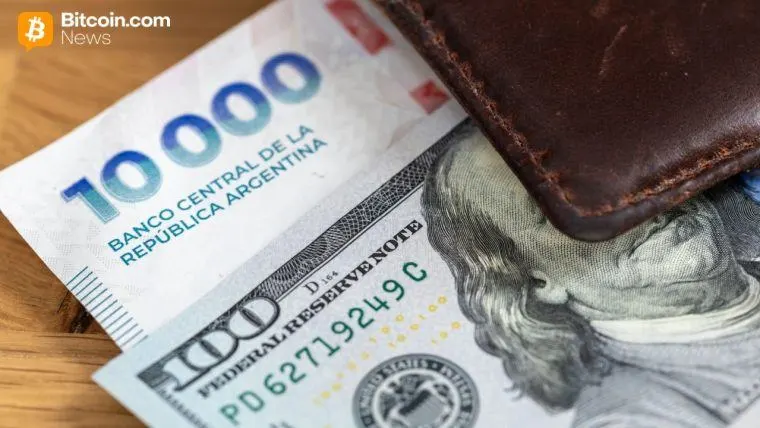Author of the opinion: Ure Utah, Technical Advisor to the Nigerian Minister of Innovation
As the value of digital currencies soars to nearly $4 trillion, the world is racing to get a piece of the pie. While Elon Musk's Dogecoin (DOGE) and the Official Trump (TRUMP) coin dominate the headlines, Africa stands at the forefront of this global financial upheaval.
This is a critical moment. Unless African leaders take action to regulate or harness cryptocurrencies, what happens next will determine whether the continent's 1.55 billion residents build greater sovereignty over their future or usher in a new era of financial instability.
The opportunities are immense. Leveraging cryptocurrencies could unlock new pools of capital, redirect remittance flows, and potentially reshape the entire sovereign debt market. African governments owe the International Monetary Fund (IMF) $42.2 billion—one-third of the organization's outstanding credit. Egypt alone owes an astonishing $7.42 billion.
These debts put pressure on national budgets and hinder growth projects.
However, the risks are extremely high. The widespread adoption of stablecoins could siphon deposits from local bank branches, undermining central banks' monetary control. The most vulnerable currencies in Africa—such as those of Sierra Leone, Uganda, and Guinea—could collapse under such volatility.
Cryptocurrencies claim to democratize finance. Yet, like every disruptive technology absorbed by global capitalism, it promises inclusivity while reinforcing exclusion. We have already seen it make the rich richer.
In Africa, the stakes are high. The population is young, and some African economies—such as oil-rich Niger and Senegal—are among the fastest-growing. However, weak regulation and relatively low levels of financial literacy mean that the communities least able to absorb losses are also the most affected.
If the annual flow of remittances worth over $95 billion migrates to blockchain rails, traditional banks and regulators could be completely marginalized, disrupting monetary policy in dozens of countries.
Consider this comparison. In the U.S., Trump's pro-cryptocurrency policies support American borrowing capacity by linking stablecoins to the government bond market, with Tether holding over $120 billion in government debt. In Europe, tokenization experiments remain heavily regulated. Meanwhile, China is weaponizing its digital yuan to expand its influence over "Belt and Road" partners.
Africa has no such buffer. This is why African leaders must act immediately to control cryptocurrencies, reduce reliance on IMF bailouts, alleviate the sovereign debt burden, and enhance Africa's ability to finance growth on its own terms.
Strong regulation is not a luxury; it is the only way to protect citizens from fraud while assuring investors that Africa's tokenization projects are serious and credible. With this, Africa could attract billions of dollars in environment, social, and governance (ESG)-oriented global capital (expected to reach $35 trillion to $50 trillion by 2030).
There is an urgent need to invest in financial literacy and decentralized finance (DeFi) skills so that communities can safely use digital assets. Tokenization infrastructure projects can enable cryptocurrencies to serve the public good.
There are models to draw from. The World Food Programme's Building Blocks project uses blockchain to distribute cash to vulnerable groups, including Syrian refugees in Jordan. This cash can be exchanged in local markets, with users purchasing goods using iris scanning technology. Last year, Building Blocks supported 65 organizations, improving efficiency and aid distribution, saving $67 million.
Inspiration can also come from the Global North, where practices using cryptocurrencies and blockchain for social good are already underway. Estonia pioneered blockchain-based e-voting, enhancing voter trust, preventing fraud, and speeding up result announcements. The U.S.-based Climate Collective is tokenizing rainforests and other natural assets to protect ecosystems and monetize carbon reductions. These use cases highlight a simple fact: cryptocurrencies can serve communities, not just markets. Related: Commonalities Among These 6 Global Cryptocurrency Hubs
Earlier this year, the $210 million Immaculata Living project launched in Chicago—this is the world's largest university-backed, cryptocurrency-driven real estate project. It is a collaboration between a private company and the American Islamic College (AIC), serving as both a social enterprise and a commercial project.
This dual nature makes it significant. By combining profit with purpose, Immaculata demonstrates how cryptocurrencies can attract investors while providing community benefits. In an industry often criticized for speculation, it offers a blueprint for how digital finance can support financially sustainable and socially transformative projects.
The redevelopment project will restore the dilapidated century-old Immaculata campus and add a 22-story tower with hundreds of senior apartments and residences for young professionals—equipped with on-site dining, health activities, care facilities, AIC courses, and diverse programming.
This is an opportunity to democratize property ownership through cryptocurrencies, allowing anyone to purchase shares of apartments at any scale they can afford. It enables investors to participate directly in a strictly regulated manner to build wealth from the ground up.
Importantly, Immaculata's intent is to serve as a blueprint for leveraging digital currencies as a force for private investment and public good, creating 50 new jobs, improving continuing education opportunities, and building a new, socially cohesive community that unites people of different generations and faiths "under one roof"—without spending taxpayer money.
Tokenization need not remain in the experimental phase in the West. Housing projects in Lagos, clean energy grids in Nairobi, or new university campuses in Accra could be financed in this way, allowing global investors to participate while local communities share in the returns.
African leaders must seize this opportunity to rewrite the rules of capital—otherwise, they risk allowing digital finance to widen the wealth gap.
Author of the opinion: Ure Utah, Technical Advisor to the Nigerian Minister of Innovation
Related: What if quantum computers have already cracked Bitcoin (BTC)?
This article is for general informational purposes only and should not be considered legal or investment advice. The views, thoughts, and opinions expressed here are solely those of the author and do not necessarily reflect or represent the views and opinions of Cointelegraph.
Original: Opinion: The Rapid Rise of Cryptocurrency Could Make or Break Africa
免责声明:本文章仅代表作者个人观点,不代表本平台的立场和观点。本文章仅供信息分享,不构成对任何人的任何投资建议。用户与作者之间的任何争议,与本平台无关。如网页中刊载的文章或图片涉及侵权,请提供相关的权利证明和身份证明发送邮件到support@aicoin.com,本平台相关工作人员将会进行核查。




